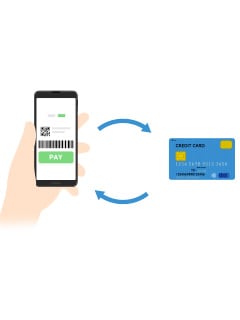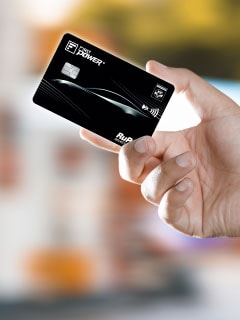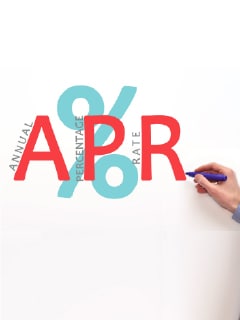CKYC Registry
-
Customer Service Contact us Service request Locate a branch
Find all the help you need
Scan the QR, get our app, and find help on your fingertips

Help CenterSupport topics, Contact us, FAQs and more
-
Login
Are you ready for an upgrade?
Login to the new experience with best features and services
-
Login
Are you ready for an upgrade?
Login to the new experience with best features and services
- Accounts
-
Deposits
IDFC FIRST Bank Deposits
View all Deposits -
Loans
IDFC FIRST Bank Loans
View all Loans - Wealth & Insure
-
Payments
IDFC FIRST Bank Payments
View all Payments -
Cards
IDFC FIRST Bank Cards
View all Cards - Blogs
- Corporate Account
-
Cash Management Services
IDFC FIRST Bank Cash Management Services
View all Cash Management Services - Supply Chain Finance
-
Corporate Lending
IDFC FIRST Bank Lending
View all -
Treasury
IDFC FIRST Bank Treasury
See more details - NBFC Financing
Support topics, Contact us, FAQs and more
- IDFC FIRST Bank Accounts
-
Savings Account
-
Corporate Salary
Account -
Senior Citizens
Savings Account -
First Power
Account -
Current Account
-
NRI Savings
Account -
TASC Institutional
Account -
Savings Account
Interest Calculator
- IDFC FIRST Bank Deposits
-
Fixed Deposit
-
Recurring Deposit
-
NRI Fixed Deposit
-
Safe Deposit Locker
-
FD Calculator
-
RD Calculator
- IDFC FIRST Bank Loans
-
Personal Loan
-
Consumer Durable
Loan -
Home Loan
-
Business Loan
-
Professional Loan
-
Education Loan
-
New Car Loan
-
Pre-owned Car Loan
-
Two Wheeler Loan
-
Pre-owned Two
Wheeler Loan -
Commercial Vehicle
Loan -
Gold Loan
-
Loan Against Property
-
Loan Against Securities
-
Easy Buy EMI card
-
Personal Loan
EMI Calculator -
Education Loan
EMI Calculator -
Home Loan
EMI Calculator
- IDFC FIRST Bank Wealth & Insure
-
FIRST Select
-
FIRST Wealth
-
FIRST Private
-
Mutual Funds
-
Sovereign Gold Bond
-
Demat Account
-
Term Insurance
-
Life Insurance
-
Health Insurance
-
General Insurance
-
Bonds
-
Loan Against
Securities -
Portfolio Management
Service
- IDFC FIRST Bank Payments
-
FASTag
-
Credit Card
Bill Payments -
UPI
-
Funds Transfer
-
Forex Services
-
Pay Loan EMI
- IDFC FIRST Bank Cards
-
Ashva :
Metal Credit Card -
Mayura :
Metal Credit Card -
FIRST Millennia
Credit Card -
FIRST Classic
Credit Card -
FIRST Select
Credit Card -
FIRST Wealth
Credit Card -
FIRST WOW!
Credit Card -
Deals
-
Debit Cards
-
Co-branded Cards
-
Credit Card
EMI Calculator -
FIRST Corporate
Credit Card -
FIRST Purchase
Credit Card -
FIRST Business
Credit Card
- Premium Metal Credit Cards
-
AshvaLifestyle1% Forex₹2,999
-
MayuraLifestyleZero Forex₹5,999
-
FIRST PrivateInvite Only
- Best for travellers
-
MayuraZero ForexMetal₹5,999
-
Ashva1% ForexMetal₹2,999
-
FIRST WOW!Zero ForexTravelLifetime Free
-
FIRST SWYPTravel OffersEMI₹499
-
FIRST Select1.99% ForexLifestyleLifetime Free
-
FIRST Wealth1.5% ForexLifestyleLifetime Free
-
Club VistaraTravelLifestyle₹4,999
-
IndiGo IDFC FIRST Dual Credit CardTravelLifestyle₹4,999
- Max benefits, Free for life
-
FIRST Classic10X RewardsShoppingNever Expiring Rewards
-
FIRST Millennia10X RewardsShoppingNever Expiring Rewards
-
FIRST Select10X RewardsLifestyle1.99% Forex
-
FIRST Wealth10X RewardsLifestyle1.5% Forex
-
FIRST WOW!RewardsTravelZero Forex
-
LIC ClassicRewardsInsuranceShopping
-
LIC SelectRewardsInsuranceShopping
- Reward Multipliers
-
AshvaLifestyleMetal₹2,999
-
MayuraLifestyleZero Forex₹5,999
-
FIRST ClassicNever Expiring RewardsShoppingLifetime Free
-
FIRST MillenniaNever Expiring RewardsShoppingLifetime Free
-
FIRST SelectNever Expiring RewardsLifestyleLifetime Free
-
FIRST WealthNever Expiring RewardsLifestyleLifetime Free
- Rewards & Credit on UPI
-
FIRST Power+FuelUPI₹499
-
FIRST PowerFuelUPI₹199
-
FIRST EA₹NVirtual1% Cashback₹499
-
FIRST DigitalVirtualUPI₹199
-
IndiGo IDFC FIRST Dual Credit CardUPITravelDual cards
- Fuel and Savings
-
FIRST PowerRewardsUPI₹199
-
FIRST Power+RewardsUPI₹499
-
LIC ClassicRewardsInsuranceShopping
-
LIC SelectRewardsInsuranceShopping
- Express and Flaunt
-
AshvaMetal1% Forex₹2,999
-
MayuraMetalZero Forex₹5,999
-
FIRST SWYPEMIOfferMAX₹499
-
FIRST MillenniaRewardsShoppingLifetime Free
- FD Backed rewarding Credit Cards for all
-
FIRST EA₹NVirtualCashback₹499
-
FIRST WOW!Zero ForexTravelLifetime Free
-
CreditPro Balance TransferTransfer & SaveReduce InterestPay Smartly
- IDFC FIRST Bank NRI Forex Solutions
-
Send money to India-Wire transfer
-
Send money to India-Digitally
-
Send money abroad
-
Max Returns FD (INR)
- IDFC FIRST Bank MSME Accounts
-
Platinum Current
Account -
Gold
Current Account -
Silver Plus
Current Account -
Merchant Multiplier
Account -
Agri Multiplier
Account -
TASC Institutional
Account -
Dynamic Current
Account -
World business
Account -
First Startup
Current Account
- IDFC FIRST Bank Business Loans
-
Business Loan
-
Professional Loan
-
Loan Against Property
-
Business Loan for Women
-
Working Capital Loan
-
Construction Equipment Loan
-
Machinery Loan
-
Healthcare Equipment Loan
- IDFC FIRST Bank Business Solutions
-
Payment Solutions
-
Tax Payments
-
Doorstep Banking
-
Point of Sale (POS)
-
Escrow Accounts
-
NACH
-
Payment Gateway
-
UPI
-
Virtual Accounts
-
As per amendment in the Income Tax Rules, PAN or Aadhaar are to be mandatorily quoted for cash deposit or withdrawal aggregating to Rupees twenty lakhs or more in a FY. Please update your PAN or Aadhaar. Kindly reach out to the Bank’s contact center on 1800 10 888 or visit the nearest IDFC FIRST Bank branch for further queries.
-
-
Most Searched
Sorry!
We couldn’t find ‘’ in our website
Here is what you can do :
- Try checking the spelling and search
- Search from below suggestions instead
- Widen your search & try a more generic keyword
Suggested
Get a Credit Card
Enjoy Zero Charges on All Commonly Used Savings Account Services
Open Account Now
Having enough money to purchase everything you need is a dream come true, and when you don’t have enough funds for important things right away, your trusty credit card is always yours! However, impulsive buying is never a good idea, and you may buy things you don’t need - making responsible credit card behavior essential.
When used wisely, there are multiple credit card benefits that can prove to be healthy for your financial planning, especially when you like to lead a good life.
Here are 6 areas where you can create a budget with your credit card to track expenses better when your cost of living is too high.
Cash flow and expense tracking
One of the best uses of credit cards is that you can take advantage of the usual 45-day payment cycle to settle bills. This gives you breathing room to manage your cash flow through the month better. For instance, if you have a major expense coming up in the middle of the month and do not have enough funds to bill the purchase, simply opt to use your credit card and make the payment.
Furthermore, when creating a budget, one of the uses of credit cards is that they help you track all your purchases. Each financial transaction can be seen systematically as a part of your credit card statement, category-wise. You can see which category is eating away at your money and adjust your habits. This breakthrough feature of credit cards proves to be extremely useful when creating a budget.
READ MORE
Availing of rewards and perks
Another definite advantage of using credit cards to fund purchases is that you can access various perks and rewards. Every time you use a credit card for a transaction, you earn points on the same. Once these points accumulate, you can convert them into cashback – or even fund another major transaction, such as buying a flight ticket! Most credit card issuers run various reward programs that must be utilized whenever applicable.
Prioritizing recurring monthly bills
It is important to prioritize monthly expenses and make payments systematically using a credit card for better clarity. Prioritize bills that need to be paid first, such as your house or office rent and your monthly EMIs, while keeping other expenses such as car registration or gym membership fees for later.
Also, consider choosing a credit card billing cycle that favors your salary payout day, giving you the bandwidth to leverage the 45-day payment cycle.
Spending only as needed
Money management is all about understanding the areas that justify your spending and realizing which expenses require a second look. It is prudent to adjust your spending patterns as you go along the process of creating a budget that aligns with your personal finance plan. For example, substituting an overseas vacation with a domestic trip can save you a lot of money, helping you create an emergency fund for later. Doing this will give you more flexibility to manage your spending and create a better budget. And if the travel category on your credit card has reached the threshold limit set by you in your budget, you can take the necessary steps to immediately correct the same and avoid spending more in that specific area.
Paying mortgage with a Credit Card
Using your credit card to clear mortgage payments makes sense in certain situations. You can earn huge rewards by clearing your debt dues using your credit card. Imagine a scenario where you want to avail yourself of the welcome bonus of 80,000 points on a new credit card but do not have enough expenditure to reach the desired amount to be eligible. Simply use your credit card to pay off your mortgage but consider whether the rewards you earn will be higher than the card processing fees you will have to pay. You can avoid late payment fees or default on your loan payments by first paying off your mortgage and then paying off your credit card dues from your pay cheque.
Using a Credit Card for fixed costs
Establish your monthly fixed costs, such as house rent, insurance premiums, daycare costs, etc. List out variable costs like grocery or utilities and periodic costs like travel, gifts, and school expenses. By averaging your annual spending, you can turn both variable and periodic expenses into a fixed cost. Doing this will give you an exact picture of all your fixed costs, and you can easily anticipate any upcoming costs. Avoid unnecessary credit card debt by saving extra money every month – a helpful strategy while preparing your budget.
Conclusion
These tips and tricks should help you budget efficiently with a credit card. Stay mindful while using your credit cards, and watch the magic happen as your financial health improves. IDFC FIRST Bank’s credit cards assist you in the process of creating a budget with some amazing features such as zero joining fees, low interest rates, low APR, and reward points that never expire. Stick to your financial budget while maintaining your lifestyle!
Disclaimer
The contents of this article/infographic/picture/video are meant solely for information purposes. The contents are generic in nature and for informational purposes only. It is not a substitute for specific advice in your own circumstances. The information is subject to updation, completion, revision, verification and amendment and the same may change materially. The information is not intended for distribution or use by any person in any jurisdiction where such distribution or use would be contrary to law or regulation or would subject IDFC FIRST Bank or its affiliates to any licensing or registration requirements. IDFC FIRST Bank shall not be responsible for any direct/indirect loss or liability incurred by the reader for taking any financial decisions based on the contents and information mentioned. Please consult your financial advisor before making any financial decision.
The features, benefits and offers mentioned in the article are applicable as on the day of publication of this blog and is subject to change without notice. The contents herein are also subject to other product specific terms and conditions and any third party terms and conditions, as applicable. Please refer our website www.idfcfirstbank.com for latest updates.























